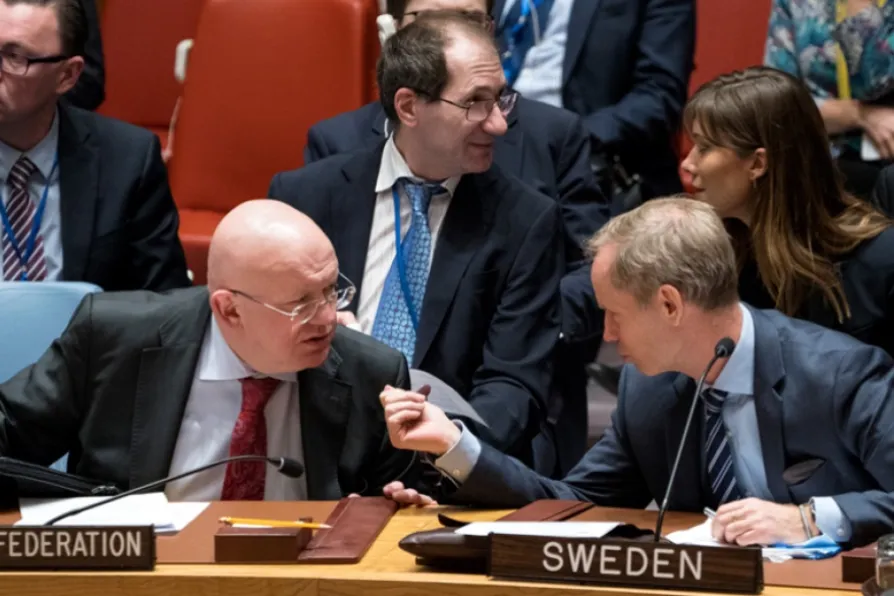Russia and US doubt Syria ceasefire will achieve much

 Russian ambassador to the UN Vassily Nebenzia (left) confers with Sweden's Olof Skoog
Russian ambassador to the UN Vassily Nebenzia (left) confers with Sweden's Olof Skoog
THE UNITED NATIONS security council unanimously adopted a resolution at the weekend proposing a 30-day humanitarian ceasefire in Syria, but both Russia and the US voiced doubts over what it might achieve.
“It would be naive to think that internal Syrian questions can be solved by a resolution,” said Russia’s UN ambassador Vassily Nebenzia after the vote.
He explained that Moscow had “supported the intentions” behind the document, but no ceasefire was possible “without agreement from warring parties.”
Similar stories

The transformation of a stable secular state into a fractured ruin largely ruled by Western-backed fundamentalists exposes the hollow nature of ‘multipolarity’ and the absence of principled anti-imperialism today, writes ZOLTAN ZIGEDY













